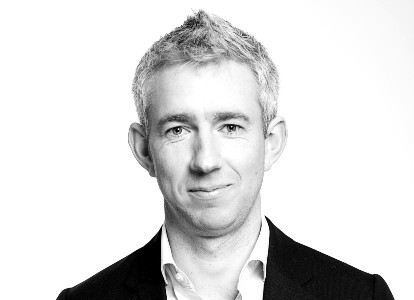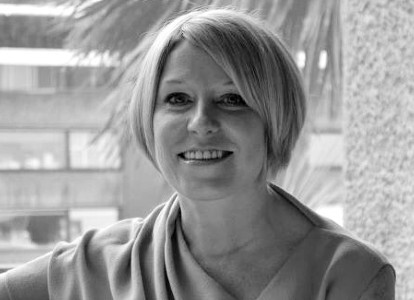
Journalist-turned-PR pro Paul Matthews speaks to us this week about his path to becoming Head of Communications at global consumer powerhouse, Unilever. It’s a busy job; Unilever operates in 190 countries with more than 3 billion consumers using their products every day! Paul talks to us about building a successful team, why having a breadth of experience is so critical in a leadership role and his most challenging and memorable moments. He also offers his advice for those who aspire to work in communications for a FTSE 100 company.
1. Can you give us a brief overview of your career so far?
Sure. I began my career as a regional journalist working for the Exeter Express & Echo in the South West. I then did a brief stint at the Daily Mail as a news reporter, before deciding to leave journalism and move into communications, first for a travel and lifestyle PR agency, before moving to Unilever in 2008. I spent a decade working in a variety of external and internal communications and corporate affairs roles. The breadth of the opportunity and experience on offer really is one of the great things about working at Unilever. In 2018 I was appointed head of function, a really dynamic and rewarding role.
2. Unilever was recently recognised by the 2022 Oxford-GlobeScan Corporate Affairs Survey as a leader in Corporate Affairs. What’s the secret to building an effective and successful comms team?
In my experience I think it comes down to three things. Firstly, having a diverse team of passionate and talented people who care about what they do. Without this, all bets are off. Secondly, being crystal clear on our collective purpose, objectives and strategy as a team in support of the company’s agenda – and then being focused on delivering against them. And lastly, culture is critical. We work hard to create a culture across the team which fosters connectivity, enables collaboration, and gives people the confidence to be courageous… in an operating environment which often demands it. I should also say that we have frequent openings to join the team, so take a look at unilever.com/careers/
3. The Unilever Compass Strategy is impressive – not just its ambitions but how it’s presented. Tell us more about it, and how you think about communicating it?
Unilever has been seen as a leader in sustainable business for some time, but the ‘Compass’ was the first time we fully integrated sustainability into our business strategy. It sets out our vision of delivering winning business performance by being the global leader in sustainable business, and highlights the strategic choices we have made as a company to position Unilever for growth now and in the future. Some of those choices are focused on “where to play” as a business – the priorities for our portfolio, brands, markets and channels. Others are focused on “how to win”, whether that’s through operational excellence, having the right organisation and culture, or through being a global leader on sustainability priorities like getting to net zero, reducing our plastic packaging footprint, regenerating nature or raising living standards across our value chain. Inevitably, the most important thing is to define the right strategy for our business to deliver long-term success – but the effective communication of it is of course key. Internally, it’s about building understanding, alignment, engagement and belief across our organisation. Externally, it serves as the foundation of the engagement we have with our many stakeholders around the world about who we are, what we do, and how we show up as a global business.
4. What guidance would you give to anyone who aspires to one day lead Communications in a FTSE 100 company?
I think one of the most important things is to collect as many different, diverse and meaningful experiences as possible across the full spectrum of the communications and corporate affairs agenda. Having that breadth becomes increasingly important in a leadership role, both in helping to guide the business across a wide range of different corporate affairs priorities, and in navigating the various complex issues and challenging stakeholder environments that businesses face. It also helps to develop good judgement, which is especially critical in the high-stakes situations which all FTSE100 businesses come up against at some point.
5. What is your most memorable work moment?
I don’t think I’ll ever forget the incredible way in which the global Unilever Communications and Corporate Affairs team worked together during the Covid-19 pandemic. I’ll be forever grateful for their commitment, contribution and selflessness during a period which was so challenging for so many people personally and professionally… and yet so important from a communications perspective to get right. I’m very proud of the team!
6. What is the biggest challenge you have faced in your career so far?
There have been many challenges along the way! One of the most interesting is leading a corporate affairs team for such a global business. In fact, Unilever is probably the most global business in the world – we have a presence in 190 countries and more than 3 billion consumers use our products every day. The most important thing we do as a team is to help build trust in Unilever, yet doing so across so many geographies comes with plenty of challenges, whether it’s delivering a consistent company message, managing different and sometimes conflicting stakeholder expectations, or ensuring we use our scale for maximum impact.
7. What’s the best piece of professional advice you’ve been given along the way, and by whom?
An early piece of advice that has always stayed with me was given by my former editor at the Express & Echo. It was in a discussion we were having about whether I should take on a new and bigger role, and I was hesitant and sceptical about whether I was ready for the change. His advice was ‘back yourself’. However, what’s been most helpful from that has been less about having the self-confidence to take on new opportunities (although at times I’ve needed that encouragement) and more about the huge learning and growth that comes when you are operating at the edge of what you feel you’re capable of.
8. If you hadn’t ended up working in comms, what was your plan B?
One of the important developments in Corporate Affairs over the last 20 years has been its professionalisation. I don’t know many corporate affairs leaders who started their career with it as their intended vocation – I generally find it’s more likely something they ‘fell into’ at a later stage. That’s a long way of saying that to be honest, it wasn’t my Plan A (journalism was)… but I’ve loved the richness and diversity of the career ever since moving into it.
9. Considering you have a ‘big job’, what do you do outside of work to de-stress?
Spending time with my wife and two children Ollie (9) and daughter Daisy (6) - although I am sure as Ollie and Daisy get older, they’ll be more likely to add to my stress levels rather than reduce them! Otherwise, I enjoy fly- and sea-fishing as a way to relax.
10. Do you have any hidden talents?
If there are any, they’re hidden for good reason!
Thank you, Paul.
For a free download of our full Annual Salary Guide 2022, click here.
Time for a change? Check out our latest jobs!
The Works Search is a search consultancy specialising in PR and corporate communications. We have unrivalled matching abilities and are known for finding the top 5% performers in the industry - the ones who deliver and make your reputation great. For more advice or market insights, do get in touch with us on 0207 903 9291 or email: sarah@the-works.co.uk


